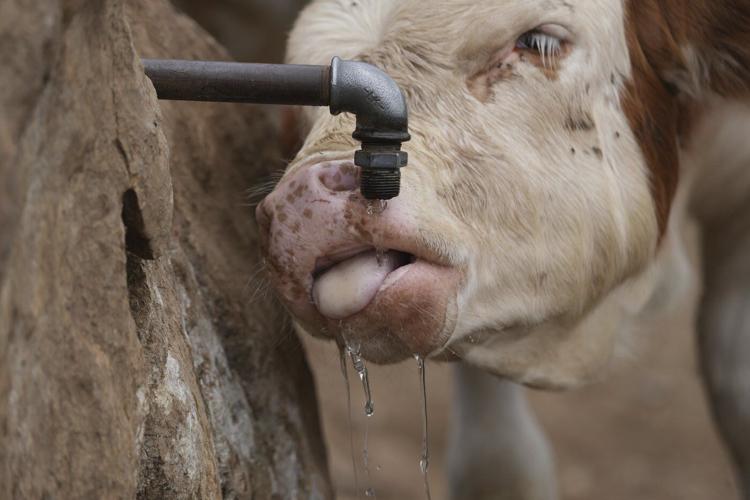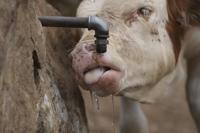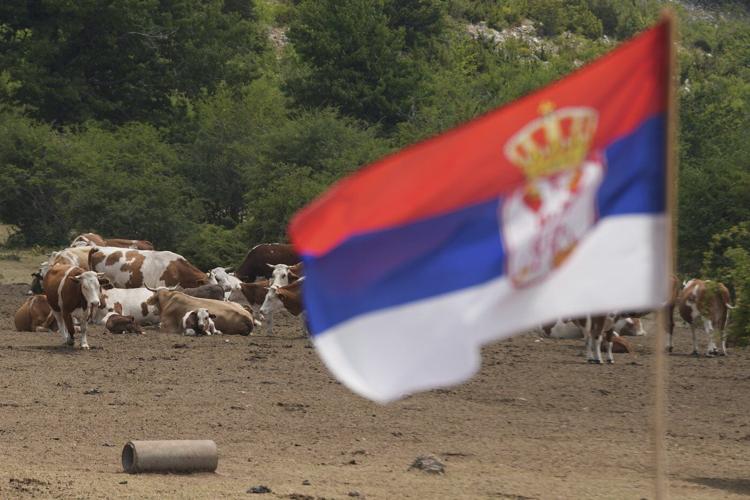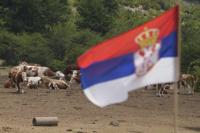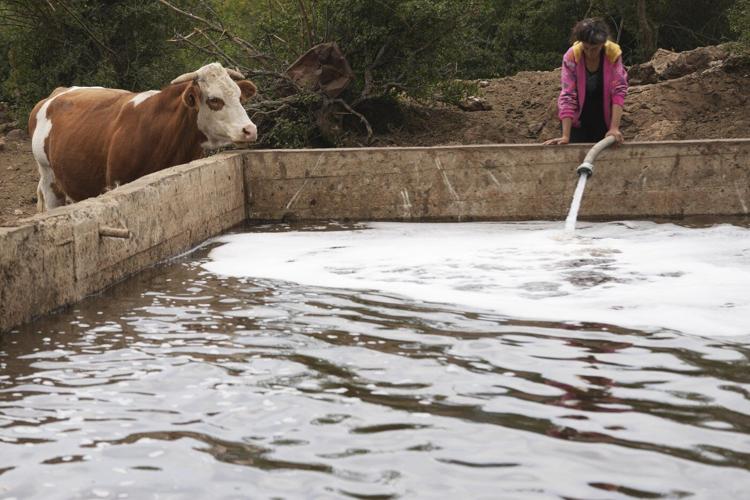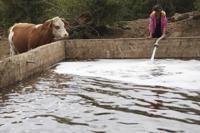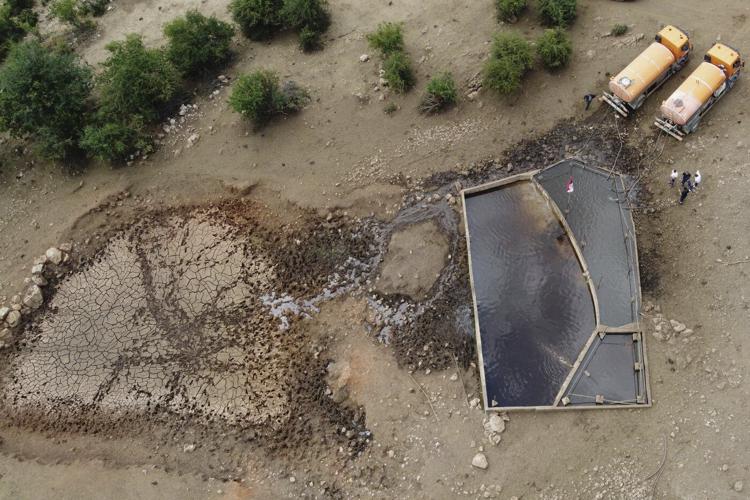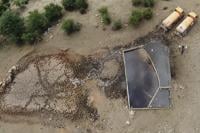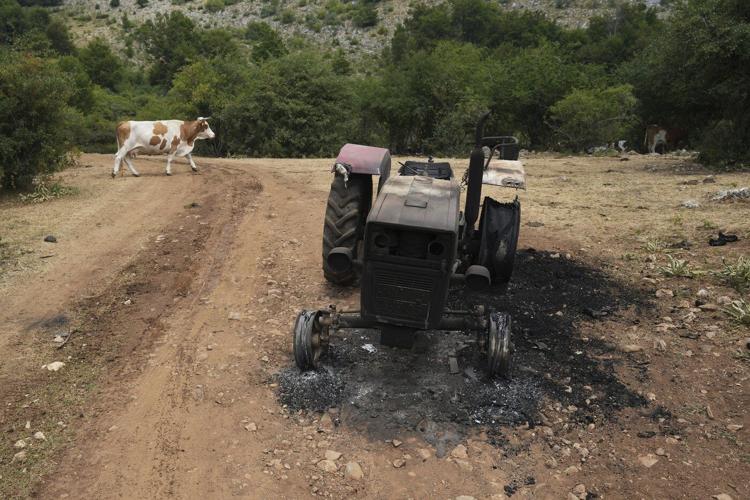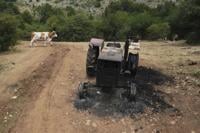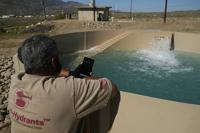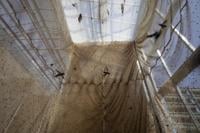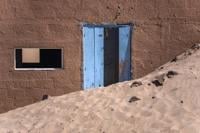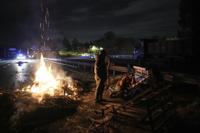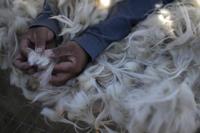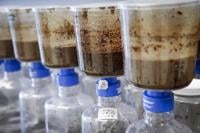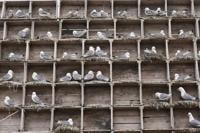SUVA PLANINA, Serbia (AP) — A severe drought this summer has left over 1,000 cows and horses without water on a mountain in southeast Serbia, forcing the authorities to bring up emergency supplies.
The early drought that started in May has affected people, animals and crops , causing water and power restrictions, disruptions in river traffic and problems in agriculture in this part of southeast Europe.
At Suva Planina, Serbian for Dry Mountain, cattle owners said they can't remember the springs ever drying up before mid-August. Lack of water has sent the cattle roaming down the mountain in panic, they said.
“We haven't had any rain on the mountain since May 27,” lamented Nikola Manojlovic, from the nearby village of Mali Krcimir.
Suva Planina is located about 250 kilometers (155 miles) from Serbia's capital, Belgrade.
The drought has left visible consequences on a plateau at the altitude of some 1,200 meters (nearly 4,000 feet) — cracked ground has replaced the main water spring, along with dry, yellow grass and dust.
“We tried to dig new wells but everything has dried up,” he said. “It was horrible, our cattle had no water for three days, they were screaming."
Alarmed, authorities drove up water trucks on Thursday, and workers used hoses to fill up a pond from the tanks for the thirsty animals. The Ministry of Agriculture said it will keep sending supplies in the coming weeks.
“We are out of imminent danger,” local municipal chief Milisav Filipovic said after the water trucks drove up the mountain. He warned that the situation remains just as bad down the mountain, in villages that have faced restrictions in water supplies for weeks now.
“Our farmers don't recall such a bad and hard year,” Filipovic said. “People here mostly do farming and use products for own needs, for their existence. This year has brought unseen hardship for them."
While a spell of rainy weather in July brought some relief, farmers say that the land is too dry deep below the surface to recover easily. Scores of small rivers, lakes and creeks that are normally used in Serbia's rural areas have dried up.
In neighboring Bosnia, meteorologists have said that June this year could end up being the driest in recent history, causing huge damage in agriculture.
In eastern Croatia, authorities declared emergency measures in several municipalities along the border with Hungary to deal with the effects of the drought. The country's vegetable growers have warned many could go out of business.
Earlier in July, both Albania and Kosovo reported water shortages that affected also electricity production in Albania.
Serbia's farmers have asked for financial help from the government, fearing poor yield, which could spike prices. Irrigation systems in the country are underdeveloped, leaving many farmers dependent on the weather.
Jovica Jaksic, of the Independent Farmers’ Association told the state RTS television that the damage to the corn is so big already that even if it rained for the rest of the summer, it wouldn't help.
Scientists warn that is exacerbating the frequency and intensity of heat and dryness in parts of Europe, making the region more .
The EU monitoring agency found that, in Europe and globally, and the continent experienced its second-highest number of “heat stress” days.
In Serbia’s northern neighbor , weather-damaged crops have dealt significant blows to the country’s overall GDP. This has prompted Prime Minister Viktor Orbán to announce the creation of a “drought task force” to deal with the problem.
Persistent droughts in the Great Hungarian Plain, in the country’s southeast, have threatened desertification, a process where vegetation recedes due to high heat and low rainfall. The soil remains “critically dry,” the country’s meteorological service said on Thursday, warning of the negative effects on the crops.
A new is expected in the Western Balkans in the coming days.
___
Associated Press writer Justin Spike in Budapest, Hungary, contributed to this report.

